 Among the addiction therapy programs in Georgia, which ones have dialectical behavior therapy as an essential component? You may want to consider the answer to this question if you’re currently looking for addiction treatment options in the area.
Among the addiction therapy programs in Georgia, which ones have dialectical behavior therapy as an essential component? You may want to consider the answer to this question if you’re currently looking for addiction treatment options in the area.
Dialectical behavior therapy was developed in the late 1980s by Dr. Marsha Linehan and her colleagues. They did so when they discovered that cognitive-behavioral therapy (CBT) alone didn’t work as well as expected when treating clients with borderline personality disorder (BPD). Dr. Linehan and her team added techniques to the framework of CBT, which then led to developing dialectical behavior therapy to meet the unique needs of clients struggling with BPD. However, dialectical behavior therapy is effective in treating other psychiatric disorders over the years.
Searching for addiction therapy options with a dialectical behavior therapy program in Athens, Georgia? Contact Athens Addiction Recovery Center today. Call 844.959.4998 or reach out to our team online.
What Is Behavioral Therapy?
Dialectical behavior therapy, like CBT, is just one type of behavioral therapy. The latter is simply an umbrella term for types of therapeutic care that treat mental health disorders.
Behavioral therapy looks to identify and help change self-destructive or unhealthy behaviors. It’s based on the idea that all behaviors are learned and that all behaviors can be changed. The focus of this type of therapy is often on a client’s current problems and how to change behaviors to help solve those problems.
Apart from CBT and dialectical behavior therapy, there are several other types of behavioral therapy, including cognitive-behavioral play therapy and acceptance and commitment therapy (ACT).
What Is Dialectical Behavior Therapy (DBT)?
Dialectical behavior therapy (DBT) is a modified type of CBT. Its main goals are to teach clients:
- How to live in the moment
- How to develop healthy ways to cope with stress
- How to regulate emotions
- How to improve relationships
As mentioned above, DBT was created to help treat the symptoms of BPD. The latter is an emotional regulation disorder marked by suicidal behavior, depression, unstable personal relationships, and other symptoms. However, DBT can also be helpful for conditions other than BPD.
DBT consists of four elements or modules:
- Core mindfulness: The development of mindfulness skills helps clients focus on the present or “live in the moment.” This helps them pay attention to what is happening inside them, as well as use their sense to tune into what’s happening around them in nonjudgemental ways. Mindfulness skills help clients slow down and focus on using healthy coping skills when amid emotional pain. The strategy can also help them stay calm and avoid engaging in automatic negative thought patterns.
- Distress tolerance: The development of distress tolerance skills helps clients accept themselves and their current situation. These techniques help prepare clients for intense emotions and empower them to cope with their feelings with a more positive long-term outlook.
- Emotional regulation: This lets clients navigate powerful feelings more effectively. The skills developed in this module will help clients identify, name, and change their emotions. These skills can reduce emotional vulnerability and help clients have more positive emotional experiences.
- Interpersonal effectiveness: The development of interpersonal effectiveness skills help clients to become more assertive in relationships while still keeping them positive and healthy.
Clients undergoing DBT programs are taught skills and coping strategies to help them lead happier and healthier lives.
When Should You Consider a Dialectical Behavior Therapy Program?
If you’re wondering when you should consider looking into addiction therapy programs in Georgia — or wherever you’re located — you should first recognize that many addiction treatment programs have behavioral therapy components. Programs like this usually include CBT, but some may include DBT.
Apart from addiction and BPD, other psychiatric conditions that may benefit from a DBT program include the following:
- Attention-deficit/hyperactivity disorder (ADHD)
- Bipolar disorder
- Eating disorders
- Generalized anxiety disorder (GAD)
- Major depressive disorder
- Non-suicidal self-injury
- Obsessive-compulsive disorder (OCD)
- Post-traumatic stress disorder (PTSD)
- Suicidal behavior
Ready to Learn More About Athens Recovery’s Addiction Therapy Programs?
If you’re looking for addiction therapy options with a dialectical behavior therapy program in Athens, Georgia, contact Athens Addiction Recovery Center today. Reach out to our team online or call 844.959.4998.
